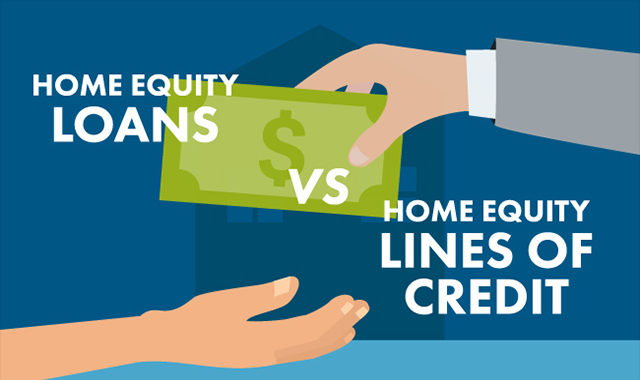Real-Life Success Stories Using Equity Release Mortgages
Real-Life Success Stories Using Equity Release Mortgages
Blog Article
Exploring the Different Sorts Of Equity Release Mortgages Available Today
Equity Release home loans present various options for property owners aged 55 and over. equity release mortgages. These monetary products deal with various demands and choices, enabling individuals to access funds from their home. From lifetime home mortgages to common recognition home loans, each type offers distinctive benefits. Understanding these options is essential for making educated decisions. What factors should one take into consideration when selecting the most ideal equity Release plan? The information that comply with may lose light on this essential topic
Recognizing Equity Release Mortgages
Equity Release home loans give property owners, commonly those aged 55 and over, with a way to access the value connected up in their residential property without needing to market it. This financial alternative enables people to convert a section of their home equity into cash money, which can be utilized for numerous purposes, such as home renovations, paying off financial debts, or funding retirement.Equity Release can take various forms, yet it fundamentally includes loaning against the worth of the home while retaining ownership. Home owners can choose to obtain a round figure or a collection of smaller repayments, relying on their financial requirements and preferences.Additionally, the quantity available for Release is affected by the property's value, the house owner's age, and specific lender requirements. On the whole, understanding equity Release home loans is crucial for homeowners to make informed decisions concerning taking advantage of their home's equity while considering the long-term ramifications.
Lifetime Mortgages
Lifetime home loans stand for among one of the most preferred kinds of equity Release. This economic item permits homeowners, typically aged 55 or older, to obtain versus the value of their building while keeping ownership. The funding, which is safeguarded versus the home, accumulates rate of interest gradually however does not need monthly repayments. Rather, the loan and built up passion are settled when the home owner dies or moves into lasting care.Lifetime home mortgages use versatility, as customers can choose to obtain a lump sum or select a drawdown center, accessing funds as required. Notably, lots of strategies included a no-negative-equity guarantee, ensuring that consumers will never owe even more than the value of their home. This attribute supplies satisfaction, permitting individuals to appreciate their retirement without the fear of diminishing their estate. In general, life time home loans function as a feasible option for those looking for financial backing in later life.
Home Reversion Plans

Drawdown Lifetime Mortgages
While several home owners look for methods to access their riches, drawdown lifetime mortgages offer a versatile choice that allows people to Release funds slowly. This type of equity Release home loan enables homeowners to obtain against the value of their home while preserving possession. Unlike standard life time mortgages, drawdown plans permit customers to access a part of their equity upfront and take out additional funds as required, as much as a predetermined limit.This attribute can be especially advantageous for those that wish to handle their finances meticulously, as it lessens interest accumulation by just charging passion on the amounts attracted. Additionally, drawdown life time mortgages usually include a "no adverse equity warranty," ensuring that debtors will never owe greater than their home's value. This alternative suits retired people that prefer economic security and versatility, permitting them to meet unforeseen expenditures or maintain their way of life without needing to sell their residential property.
Enhanced Lifetime Mortgages
Improved Life time Home mortgages offer unique advantages for qualified home owners seeking to Release equity from their buildings. Understanding the eligibility requirements is necessary, as it establishes that can gain from these specialized car loans. It is also essential to assess the potential drawbacks associated with enhanced alternatives, making certain a well-shaped viewpoint on their usage.
Eligibility Requirements Discussed
Understanding the qualification standards for Improved Lifetime Mortgages is important for potential candidates seeking to access the equity in their homes. Usually, applicants must be aged 55 or older, as this age need is common in the equity Release market. Homeowners need to possess a building valued at a minimal threshold, which can differ by loan provider. Importantly, the property has to be their main house and in great condition. Lenders often examine the property owner's wellness condition, as certain health and wellness conditions might enhance eligibility and advantages. Furthermore, candidates ought to not have existing significant debts safeguarded against the residential property. Meeting these requirements allows individuals to discover Enhanced Lifetime Home loans as a viable choice for accessing funds linked up in their homes.
Benefits of Improved Home Mortgages
After clarifying the eligibility requirements, it becomes noticeable that Enhanced Lifetime Home loans supply several significant advantages for home owners looking to leverage their residential property equity. Largely, they provide access to a larger finance quantity contrasted to standard life time mortgages, benefiting those with health conditions or age-related factors that enhance their life span danger. This improved loaning ability enables house owners to satisfy different monetary requirements, such as home enhancements or retirement expenditures. Additionally, these home mortgages typically come with flexible settlement alternatives, making it possible for consumers to handle their financial resources a lot more successfully. The no-negative-equity assurance even more guarantees that homeowners will certainly never ever owe more than their residential or commercial property's value, providing assurance. Generally, Improved Life time Home mortgages provide a compelling alternative for qualified property owners looking for monetary services.
Potential Disadvantages Thought About
While Enhanced Life time Mortgages offer many benefits, possible disadvantages warrant mindful consideration. One substantial problem is the effect on inheritance; the equity released reduces the worth of the estate left to recipients. Additionally, these home mortgages can accrue significant interest with time, resulting in a substantial debt that might exceed the original loan amount. There might also be limitations on residential or commercial property adjustments or rental, restricting property owners' adaptability. Moreover, improved items often need details health conditions, indicating not all home owners will qualify. Finally, managing the charges and fees linked with these home mortgages can be complex, potentially leading to unexpected costs. Therefore, individuals need to extensively analyze their scenario and get in touch with economic experts prior to proceeding.
Shared Gratitude Mortgages
Shared Appreciation Home mortgages stand for a special monetary arrangement that enables property owners to accessibility equity while sharing future home worth raises with the lending institution. This approach provides prospective benefits such as lowered regular monthly payments, but it additionally includes drawbacks that have to be very carefully thought about. Understanding the qualification requirements is essential for those curious about this option.
Principle Summary
Equity Release home loans, particularly in the type of shared recognition home mortgages, supply home owners a special financial option that allows them to gain access to funds by leveraging the worth of their building. In this arrangement, a loan provider provides a loan to the property owner, which is typically paid back via a share of the home's future admiration in value. This implies that when the home owner sells the home or dies, the lending institution receives a percentage of the boosted worth, rather than just the preliminary finance quantity. Shared appreciation home loans can be appealing for those seeking to supplement moved here their revenue or money significant expenses while keeping ownership of their home. Nevertheless, the monetary ramifications of common recognition have to be meticulously taken into consideration by possible borrowers.
Advantages and Drawbacks
Although common appreciation home loans can provide substantial financial advantages, they additionally include significant disadvantages that prospective borrowers should consider. These mortgages permit home owners to gain access to equity in their residential properties while sharing a part of any kind of future recognition with the lender. This setup can be useful throughout times of increasing home worths, providing significant funds without regular monthly settlements. The major drawback is the prospective loss of equity; homeowners may end up with significantly reduced inheritance for beneficiaries. In addition, the complexity of the terms can result in misconceptions regarding payment responsibilities and the percent of appreciation owed. As a result, it is crucial for borrowers to evaluate these variables carefully before committing to a shared recognition home loan.
Eligibility Requirements
What requirements must property owners meet to certify for a shared recognition mortgage? Mainly, prospects need to go to least 55 years old, guaranteeing they are within the target group for equity Release items. In addition, the property needs to be their main home and normally valued over a specified minimum threshold, frequently around ? 100,000. Lenders also evaluate the property owner's monetary scenarios, including income and superior financial debts, to identify they can handle the home mortgage responsibly. Importantly, the residential property needs to remain in good problem and without substantial lawful encumbrances. House owners ought to additionally have a clear understanding of the terms, consisting of how gratitude will be shown to the lender upon sale or transfer of the building, as this affects total returns.
Selecting the Right Equity Release Alternative

Often Asked Concerns
What Age Do I Required to Be for Equity Release?
The age requirement for equity Release generally begins at 55 for a lot of strategies. Nevertheless, some suppliers might offer options for those aged 60 and above, showing differing terms based upon individual situations and lender policies.
Will Equity Release Affect My Inheritance?
Equity Release can influence inheritance, as the amount obtained plus passion minimizes the estate's value. Heirs might get much less than anticipated, depending on the home's admiration and the total financial debt at the time of passing.
Can I Relocate Home With Equity Release?
The inquiry of relocating home with equity Release arises often. Usually, individuals can move their equity Release plan to a brand-new home, but certain terms might use, requiring appointment with the loan provider for advice.
Are There Fees Related To Equity Release Mortgages?
Costs associated with equity Release mortgages can consist of plan charges, assessment charges, and lawful prices. Furthermore, there might be very early settlement costs, which can affect the total cost and economic implications for the debtor.
Exactly How Does Equity Release Influence My Tax Situation?
Equity Release can affect one's tax obligation scenario by potentially boosting gross income, as launched funds are thought about capital. Nonetheless, it generally does not sustain instant tax responsibilities, making it necessary to seek advice from a financial advisor for individualized advice.
Conclusion
In summary, the range of equity Release mortgages offered today uses property owners aged 55 and over several paths to access their residential property's worth - equity release mortgages. Whether choosing a life time mortgage, home reversion helpful site strategy, or various other alternatives, each option offers unique benefits customized to private economic needs. Cautious consideration and consultation with an economic advisor are necessary to guarantee the selected equity Release option straightens with individual goals and financial circumstances, ultimately facilitating informed decision-making for a protected monetary future. Equity Release home mortgages existing different options for house owners aged 55 and over. Equity Release home loans supply home owners, normally those aged 55 and over, with a method to access the worth linked up in their property without needing to market it. Improved Life time Home loans use distinctive benefits for qualified house owners looking for to Release equity from their properties. Equity Release home mortgages, especially in the type of shared admiration mortgages, offer home owners an unique economic service that allows them to accessibility funds by leveraging the worth of their property. In summary, the selection of equity Release home loans offered today offers homeowners aged 55 and over multiple pathways to access their home's worth
Report this page